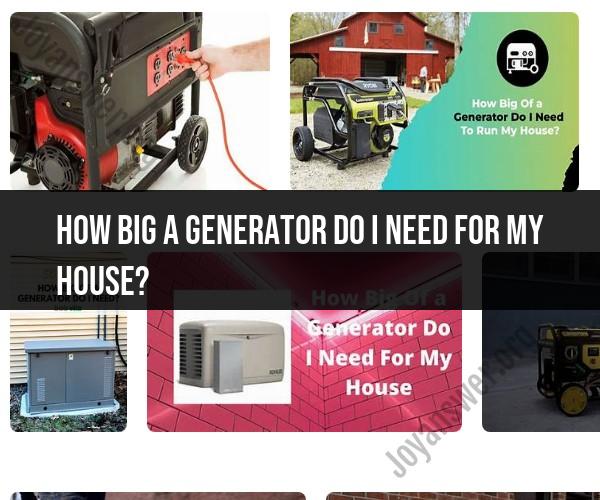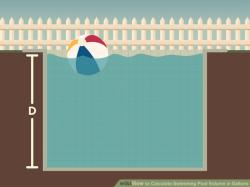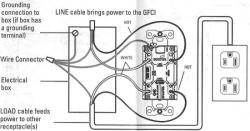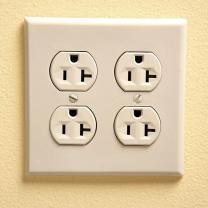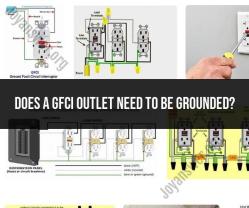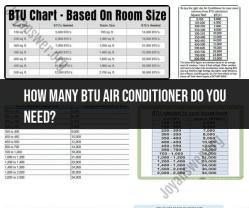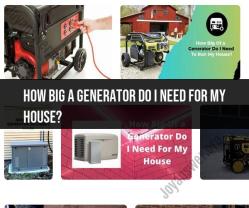How big a generator do I need for my house?
Determining the right size of a generator for your house involves assessing your power needs and understanding the capacity of the generator to provide sufficient electrical power during outages. The size of the generator is typically measured in kilowatts (kW) or, for smaller portable generators, in watts (W). Here's a step-by-step guide to help you size a generator for your house:
List Your Essential Appliances and Equipment:Make a list of all the appliances and electrical equipment you want to power during a blackout. Focus on essential items such as lights, refrigerators, freezers, heating or cooling systems, water pumps, medical equipment, and communication devices.
Determine the Starting and Running Watts:For each item on your list, find out its starting (surge) wattage and running (continuous) wattage. This information can usually be found on the appliance's nameplate or in the owner's manual. Appliances like refrigerators and air conditioners have higher starting wattage, which is important to consider.
Calculate Total Wattage:Add up the running wattages of all the items on your list. This will give you the total running wattage required to power your essential appliances continuously.
Consider Starting Wattage:In addition to the running wattage, consider the total starting wattage. Generators need to handle the initial surge in power when appliances start up. Typically, you'll want a generator with a capacity large enough to accommodate the highest starting wattage item on your list.
Size the Generator:Choose a generator with a rated capacity that is equal to or greater than the total starting wattage of your essential appliances. If you have multiple large appliances with high starting wattages, you may need a larger generator. Be cautious not to overload the generator, as this can damage appliances and the generator itself.
Consider Fuel Type: Generators can be powered by different fuels, including gasoline, propane, natural gas, and diesel. Choose a fuel type that is readily available and suits your needs.
Professional Assessment:If you're unsure about your calculations or have specific concerns about your home's electrical system, consider hiring a professional electrician or a generator dealer to conduct an on-site assessment and provide recommendations.
Portable vs. Standby Generator: Decide whether you want a portable generator or a standby generator. Standby generators are permanently installed and automatically provide power during outages. Portable generators require manual setup and should be operated outdoors to avoid carbon monoxide risks.
Budget and Noise Considerations: Take your budget and noise concerns into account. Some larger generators can be noisy, so consider where the generator will be located and whether it meets local noise regulations.
Keep in mind that while sizing the generator to power essential items is crucial, you may not be able to power your entire house with a single generator unless you invest in a whole-house generator with the capacity to meet your total power needs.
Before purchasing a generator, it's essential to review local building codes and regulations, consult with a licensed electrician, and ensure that the installation and operation of the generator comply with safety guidelines and standards. Additionally, routine maintenance and regular testing of your generator are important to ensure it operates effectively when needed.
How Big a Generator Do I Need for My House? Power Sizing Tips
The size of the generator you need for your house will depend on a number of factors, including:
- The type of appliances and electronics you want to power
- The number of appliances and electronics you want to power at the same time
- The starting wattage and running wattage of your appliances and electronics
To calculate the size generator you need, you can use the following formula:
Total wattage needed = starting wattage + running wattage
Once you have calculated the total wattage needed, you can choose a generator that has a capacity that is equal to or greater than your total wattage needs.
Here are some tips for power sizing your generator:
- Consider your essential needs. Make a list of the appliances and electronics that you must have power for during a power outage. This may include your refrigerator, freezer, lights, and sump pump.
- Add up the wattages. Once you have a list of your essential needs, look up the wattages of each appliance and electronic. You can find this information in the owner's manual or on the manufacturer's website.
- Factor in starting wattage. Some appliances, such as refrigerators and air conditioners, require more power to start up than they do to run. This is known as starting wattage. Be sure to factor in the starting wattage of your essential appliances when choosing a generator.
- Choose a generator with a higher capacity. It is always better to choose a generator with a higher capacity than you think you need. This will give you some extra room to grow in case you add new appliances or electronics in the future.
Calculating Home Power Requirements for Generator Selection
To calculate your home power requirements for generator selection, you will need to make a list of all the appliances and electronics in your home. Once you have a list, you will need to look up the wattage of each appliance and electronic. You can find this information in the owner's manual or on the manufacturer's website.
Once you have the wattage of each appliance and electronic, you will need to add them up to get your total power requirement. Be sure to factor in the starting wattage of any appliances that require more power to start up than they do to run.
Once you know your total power requirement, you can choose a generator that has a capacity that is equal to or greater than your total power needs.
Permanent vs. Portable Generators for Residential Use
There are two main types of generators for residential use: permanent and portable.
Permanent generators are installed outside your home and are connected to your electrical system. They are typically more expensive than portable generators, but they are also more reliable and easier to use.
Portable generators are not connected to your electrical system and can be moved around as needed. They are typically less expensive than permanent generators, but they are also less reliable and require more manual operation.
Generator Installation, Maintenance, and Emergency Preparedness
If you are considering installing a permanent generator, it is important to hire a qualified electrician to do the job. Permanent generators can be dangerous to install and operate if not done properly.
Once your generator is installed, it is important to maintain it properly. This includes changing the oil and spark plugs regularly and testing the generator to make sure it is working properly.
It is also important to be prepared to use your generator in an emergency. This includes having enough fuel on hand and knowing how to operate the generator safely.
Real Stories of Homeowners and Their Generator Solutions
Here are a few real stories of homeowners and their generator solutions:
- "We live in a rural area and experience frequent power outages. We installed a permanent generator a few years ago, and it has been a lifesaver. We are able to power our essential appliances and electronics during power outages, and we don't have to worry about losing food in our refrigerator and freezer."
- "We recently moved to a new house that is prone to power outages. We decided to purchase a portable generator so that we could have power during a power outage. We have already used the generator a few times, and it has worked great. We are able to power our refrigerator, freezer, lights, and sump pump."
- "We had a power outage last winter that lasted for several days. We were so glad that we had our generator. We were able to stay warm and comfortable, and we were able to keep our food from spoiling."
If you live in an area that is prone to power outages, a generator can be a valuable investment. By choosing the right generator and maintaining it properly, you can ensure that you have power when you need it most.
